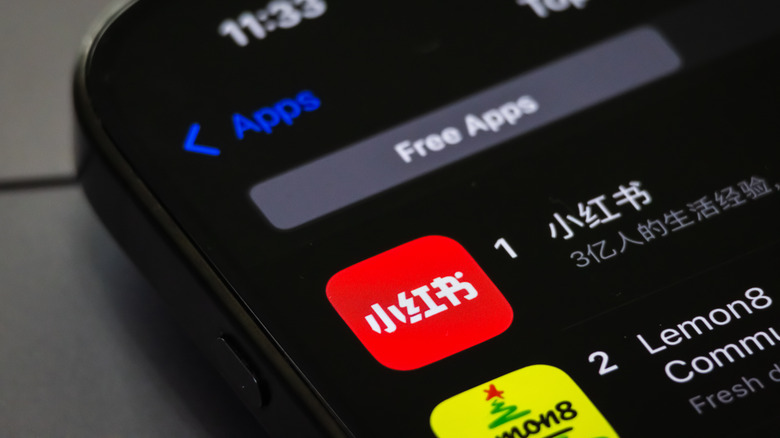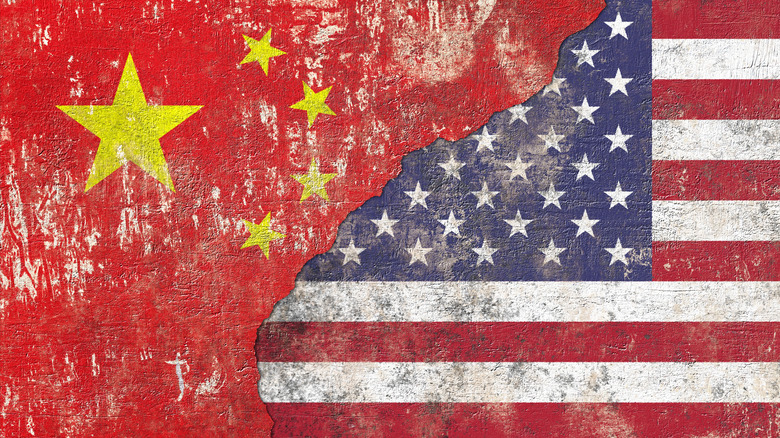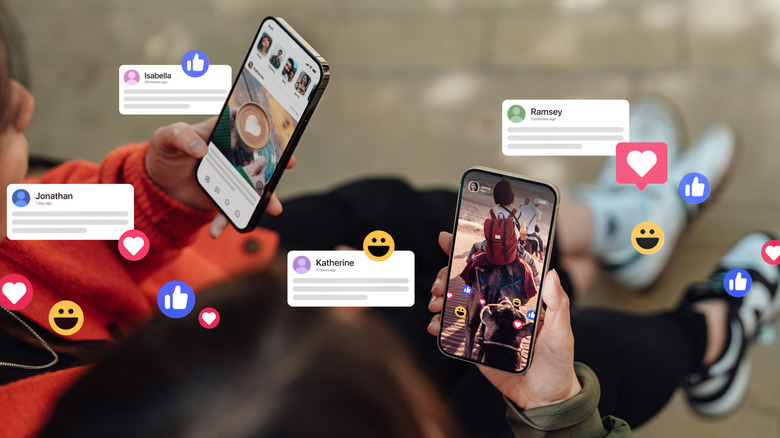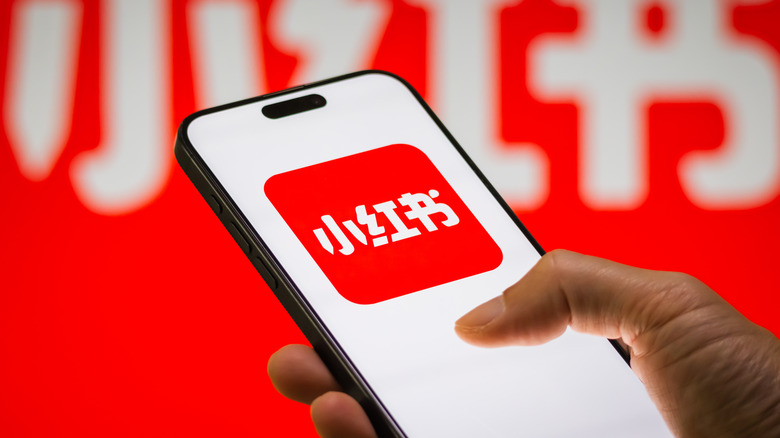What Is RedNote? Everything You Should Know Before Downloading The TikTok Alternative
TikTok, owned by the Chinese company ByteDance, has been making headlines since the COVID-19 pandemic, when just about everyone was forced to work from home. At first, it was positive news because it gave everyone a new outlet for creativity. However, it eventually came under scrutiny for its Chinese connections. Whether that scrutiny is warranted or not, the United States Congress decided to move along with banning TikTok in the U.S. unless ByteDance sells the app to an American entity by January 19, 2025. American TikTok users have been scrambling to find an alternative since news broke, and now it looks like they might have found one.
In a last stand of rebellion, American users have been migrating over to Xiaohongshu, or RedNote in English, en masse, making it the number one free app in the Apple App Store overnight. RedNote launched in 2013 and was initially geared toward tourists with the name "Hong Kong Shopping Guide". It gradually became China's answer to Instagram. There are some definite similarities to TikTok that longtime users will feel comfortable making the switch, but there are also enough differences to feel fresh.
For starters, its layout is more akin to Pinterest, where you can see a preview of the content but won't actually see it until you tap on it. Users have to make an account to peruse content, whereas TikTok you can use without creating an account. You're unable to use your American phone number to sign up and will have to instead use your email address, but the differences don't end there.
RedNote has stronger ties to China than TikTok
The U.S. government deemed TikTok an unsafe place for its constituents because its parent company is in China, rationalizing that user data is vulnerable to exposure. However, TikTok itself is not a Chinese company and has gone to great lengths to reassure the U.S. government that it's safe. Its main headquarters is in Singapore, which is an island-nation, not part of China. Furthermore, TikTok has a headquarters in Los Angeles, California operated by American citizens. TikTok's main data centers for its over 150 million U.S. users are located in Northern Virginia and Hillsboro, Oregon. TikTok devs were in the middle of getting Project Texas off the ground, a means to ensure its American userbase's safety that would have included government and independent oversight.
The same can't be said about RedNote. While it might have global aspirations, its headquarters is in Shanghai with a predominant Chinese userbase. RedNote's language settings can be adjusted, but the majority of the content users post is in Mandarin. The terms of service remain in Mandarin even after you sign up and change the language to English, leaving the majority of Americans in the dark as to what they're agreeing to.
This influx of English-speaking users has forced RedNote devs to scramble, creating methods for moderating English-language content as well as building English-Chinese translation tools. This in itself can be problematic for RedNote as China is strict about the type of content it allows its citizen to be exposed to.
China has a firewall against popular social media apps
China is very strict with the content it allows its citizens to view on the internet. It has its own internet in a way that's closely monitored by the Communist party that sounds like something out of "1984". The country has had a strict view of the internet since the '90s, when it enacted the Golden Shield Project, which controlled the information visible to its citizens. The government's censorship of the information only grew tighter under President Xi Jinping's rule, starting in 2012. He views America's view of the internet as a free flow of information as the antithesis to Chinese values because Xi believes the internet should reflect a country's ideals.
Mainland citizens don't have Facebook, X, formerly known as Twitter, or even TikTok. ByteDance offers Douyin to mainland China, a different version of TikTok that complies with Chinese government moderation rules. It's ironic that the U.S. government — as far as it claims — wants to protect its citizens from potentially harmful adversaries yet has pushed its constituents over to a bonified app owned by the very mentioned adversary.
Why not Instagram?
Instagram seems like one of the top contenders to TikTok with its Reels, short-form videos similar to TikTok's, but many American TikTokers won't be caught dead on a Meta app even if it's ad-free. Younger generations and people who feel threatened by a particular body of power can be exceptionally petty when the need arises. Meta, the company that owns Facebook, Instagram, Threads, and WhatsApp, released a disclosure that laid out its spending on lobbying activities. It shows that it lobbied Congress and the White House on many of the key talking points that have been used against TikTok. While it doesn't name TikTok directly, TikTok users interpreted it that way, discouraging many from wanting to migrate over to Instagram even if TikTok is removed from the U.S.
It's not just that Meta lobbied the government, it's that it spent a record-breaking $7.6 million to do so. American TikTokers are preparing to boycott all Meta-owned apps if the ban goes through as a way to show Mark Zuckerberg how they feel about his company's involvement. There is a visible line that can be drawn, as a good chunk of the ad revenue that went to TikTok would end up going to Meta, making it one of the biggest beneficiaries following a TikTok ban.
RedNote's future
Nobody can predict what will happen next for RedNote. There's a bill in the U.S. Senate introduced by Senator Markey gaining traction that would stay the TikTok ban for 270 days. That could end with the ban never taking effect, in which case most users who migrated over to RedNote might return to TikTok. In which case, all the trouble RedNote devs have gone through to accommodate its new American userbase would be for naught. The opposite effect could happen as well if TikTok is banned and RedNote permanently fills the void, with the whole migration backfiring. RedNote could eventually end up on the chopping block.
Unlike TikTok, RedNote doesn't have any data centers in the U.S., nor are there any plans to initiate a project that would ensure privacy for its American users. Since launching in 2013, the Chinese app hasn't made any strides to appeal to American users. Until 2025, it was virtually unheard of by the general population. Moreover, American users might be more of a bane than a benefit, since companies are responsible for their content in China. The type of content they share might break rules they're unable to read in the TOS, which is partly why so many have taken to learning Mandarin.
Some of the "TikTok refugees" have created tutorials, explaining how to set the language to English to create an enjoyable experience. RedNote users have been more than welcoming to their American counterparts, making welcome videos and explaining what RedNote is all about.




